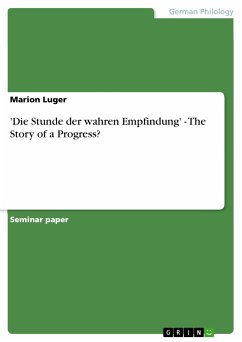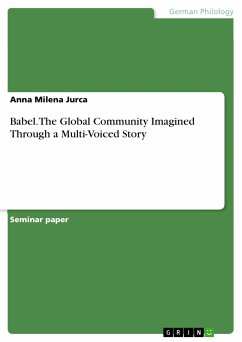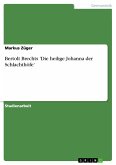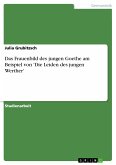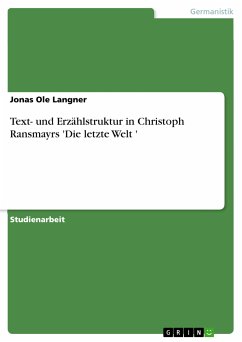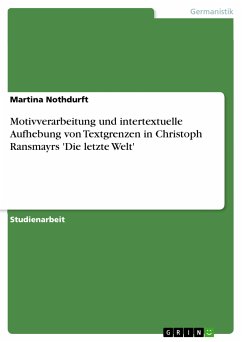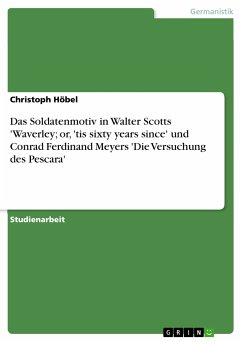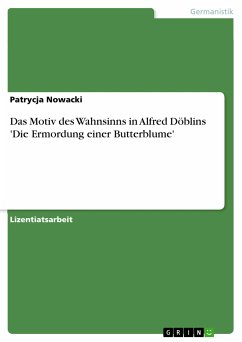Seminar paper from the year 2001 in the subject German Studies - Modern German Literature, grade: 1,00, University of Sussex, language: English, abstract: As far as the moral of the novella “Die Stunde der wahren Empfindung” is concerned, David Roberts recognizes Peter Handke’s inability to decide “zwischen der existentiellen Symbolik von Tod und Wiedergeburt und der richtungslosen Unbestimmtheit einer Fortsetzungsgeschichte” and states that “[d]ie Inkonsequenz der Erzählung [...] buchstäblich ohne Konsequenz [ist]“. Similarly, Gunther Pakendorf regards the story „als Verlegenheitslösung, als Zeichen der Auswegslosigkeit und Ohnmacht der Wirklichkeit gegenüber“. In opposite to these negative interpretations, I will attempt to prove that the protagonist does experience personal development which might lead him to enjoy a positive future. Firstly, the essay will indicate the manner in which Gregor Keuschnig copes with the challenge of discovering hitherto unknown emotional facets of his personality (section II). Thereafter, section III illustrates the alteration in Keuschnig’s thinking towards the conventional order of things; then section IV investigates Keuschnig’s change of attitude regarding those things he feels are significant. Finally, section V deals with an alternative relationship between the individual and society. [...]
Bitte wählen Sie Ihr Anliegen aus.
Rechnungen
Retourenschein anfordern
Bestellstatus
Storno

